How The Thiel Fellowship Created $750B+ In Value
Ethereum, Anthropic, Figma, OYO, Scale AI
“Brilliant thinking is rare, but courage is in even shorter supply than genius.”
In just over a decade, The Thiel Fellowship has produced over $750B+** in value creation with a 13.79% unicorn hit rate. Fellows launched some of the most important companies of the 21st century: Vitalik Buterin (Ethereum), Chris Olah (Anthropic), Dylan Field (Figma), Lucy Guo (Scale AI), Ritesh Agarwal (OYO), Laura Deming (Longevity Fund), and more.
→ Listen on X, Spotify, YouTube, Apple
In this episode, Danielle Strachman, a Founding architect of the Thiel Fellowship, shares the inside story behind the radical program born out of Peter Thiel’s Thiel Foundation that gives $100K to teenagers willing to drop out of school and build. She reveals the contrarian traits they looked for in founders, and the lessons she learned from working closely with Thiel, whose first-principles thinking shaped the program.
**At the time of recording we had the figure at $550B. We recently learned Anthropic co-founder Chris Olah was also a Thiel fellow - The new figure includes Anthropic's upcoming financing at $170B.
"What important truth do very few people agree with you on?”
Now as co-founder of 1517 Fund, alongside Michael Gibson, Danielle is scaling that same ethos — backing dropouts and sci-fi scientists at the earliest stages.
This is the story of how a contrarian $100K bet on young people rewired Silicon Valley and continues to shape the future of education & entrepreneurship.
Key Points Below ⬇
$100K Grants → $750B+ In Value
Programs That Spun Out: 1517, OSV & 776 Fellowships
Disrupting Education + Zuckerberg’s Secret School
Alpha School: Next-Gen Contrarian Education
Why People Think Thiel is “Evil” ??
Selection Process: Traits, Anti-Traits & The Famous Question
Legacy + List of Notable Fellows
Brought to you by:
Brex—The intelligent finance platform: cards, expenses, travel, bill pay, banking—wrapped into a high-performance stack. Built for scale. Trusted by teams that move fast.
Turing—Turing delivers top-tier talent, data, and tools to help AI labs improve model performance, and enable enterprises to turn those models into powerful, production-ready systems. Visit: turing.com/sourcery
Kalshi—The largest prediction market & the only legal platform in the US where people can trade directly on the outcomes of future events (sports, politics, weather, AI, etc).
Fourthwall—The #1 way to sell merch online. Fourthwall is the easiest way to launch a fully branded merch store—used by big brands like MKBHD, Acquired, & even the Smithsonian. 100+ products. No upfront cost.
Timestamps
(00:00) Thiel Fellowship
(01:10) $750B+ Outcomes: Ethereum, Figma, Scale AI, OYO
(08:32) The Contrarian Question
(15:00) The Fellowship: $100K, No School, Radical Freedom
(19:00) Media Backlash, Cultural Criticism, & Dropping Out
(26:45) Cultural Impact and Future Vision
(33:02) Is Peter Thiel Evil?
(37:41) How The Fellowship Reshaped Venture’s View of Young Founders
(39:10) Key Traits That Predict Success
(45:10) Founding 1517 Fund: Scaling The Fellowship Model
(52:52) The Next Wave: Dropouts, Sci-Fi Scientists, & Direct Patronage
(55:30) The Rise of Alpha School: AI-Based Education
Inside the $750B+ Thiel Fellowship: Lessons from Danielle Strachman
The Thiel Fellowship began in 2010 as a radical experiment. Instead of celebrating elite degrees, Peter Thiel announced that he would pay young people $100,000 to drop out of college and pursue their ideas. At the time, critics called it reckless.
Over a decade later, the results speak for themselves: 290 fellows, over $750B in value creation, a cultural shift in how Silicon Valley views education and talent, and..
the highest unicorn hit rate at 13.79% among top universities & programs:
A quick step up from this dated but recently viral YC x Thiel comp chart:
As Founding Director of the Thiel Fellowship, Danielle Strachman helped design and run the program from the ground up. Today she is co-founder and General Partner of 1517 Fund, a venture firm spun out of the Fellowship’s ethos, backing dropouts and “sci-fi scientists” at the earliest stages. In conversation, Strachman unpacked the key lessons from that experiment, and what they mean for the next generation of founders.
Why Thiel Fellows Win
$100K Grants → $750B+ in Value
The numbers are staggering. The Fellowship has produced Ethereum (Vitalik Buterin), Anthropic (Chris Olah), Figma (Dylan Field), Scale AI (Lucy Guo), OYO (Ritesh Agarwal), the Longevity Fund (Laura Deming), and dozens of other influential companies.
$750B+ in value creation
13.79% unicorn hit rate across 290 fellows
Global impact across crypto, design, AI, hospitality, & biotech
What began as a contrarian $100K grant turned into one of the most influential experiments in modern venture history. More importantly, it reframed how people think about talent — showing that age and credentials are not predictors of success at the frontier.
Read more from Blake Dodge in Pirate Wires: Why Thiel Fellows Win
Offshoots & Impact
The Thiel Fellowship did not remain an isolated experiment. Its success sparked a broader ecosystem of alternative fellowships, venture funds, and cultural offshoots:
1517 Fund – Co-founded by Danielle Strachman & Michael Gibson to back dropouts and non-credentialed founders with pre-seed capital.
OSV Fellowships (O'Shaughnessy Ventures) – Inspired by the model of direct talent investment.
776 Fellowship (Alexis Ohanian) – Offering grants & mentorship to ambitious young builders.
Cultural impact – Normalized gap years and the idea that ambitious teenagers should be taken seriously.
The Fellowship created a playbook and revolution for backing individuals directly, a model now being replicated across venture.
Disrupting K-12 & Universities
At its core, the Fellowship was a critique of higher education. Strachman notes that it wasn’t about “anti-college” rhetoric so much as exposing the opportunity costs of spending four years in lecture halls instead of building.
Thiel’s contrarian message “college isn’t for everyone” forced a broader reckoning with the escalating costs of higher ed, the credentialing arms race, and the debt burden placed on young people.
The program highlighted an alternative path: direct experience, rapid iteration, and mentorship from builders rather than professors. In practice, this became a cultural permission slip for ambitious teenagers to skip the standard track.
Alpha School: The Next Generation of Contrarian Education
One of the most interesting offshoots Strachman highlights is Alpha School in Austin, a private program, supported by big names like Bill Ackman, that blends AI-driven test prep with project-based learning.
At Alpha, students spend only a small portion of their day on standardized tests, using adaptive AI tools to accelerate learning. The rest of their time is dedicated to building projects, pursuing interests, and developing real-world skills. Unlike most schools, Alpha even allows students to go off campus during the day — a level of freedom that mirrors the Fellowship’s ethos of agency and self-direction.
For Strachman, Alpha represents the same spirit that inspired the Thiel Fellowship: give young people autonomy, access to the best tools, and permission to think differently, and they will outperform expectations. In many ways, Alpha is an educational manifestation of the Fellowship’s lessons applied earlier in life.
Learn more on Alpha School:
Building Alpha School, and The Future of Education, Colossus
Alpha School: A New Approach To Education - MacKenzie Price, Chris Williamson
Why do People Think Thiel is “Evil” ?
In the interview, Strachman addressed the perception of Peter Thiel as “evil.” She points out that Thiel has always been unafraid to say things that threaten entrenched systems, whether in politics, markets, or education.
His backing of Donald Trump in 2016 amplified that perception (oh scary!!!), cementing him as a polarizing figure. But Strachman argues that this overlooks the positive contributions: sparking a cultural debate on higher ed, seeding generational companies, and demonstrating the power of contrarian bets.
The Fellowship itself is a case study in Thiel’s broader worldview: courage matters more than credentials, & consensus is usually the enemy of breakthrough ideas.
Selection: Traits & The Famous Question
One of the most fascinating aspects of the Fellowship was how Fellows were chosen. Strachman outlined a set of traits that predicted outsized success:
Traits:
Ambition – The scale of vision mattered more than polish.
Agency – Fellows needed the ability to act without waiting for permission.
*Hyperfluency* – The ability to talk about complex ideas with unusual clarity.
Alchemy – Making extraordinary progress with limited resources.
Courage – A willingness to pursue unpopular or absurd-sounding paths.
Anti-Traits: Red Flags
Credential Reliance – Applicants who leaned too heavily on test scores or elite degrees rather than vision.
Consensus Thinking – Safe, agreeable ideas that aligned with mainstream narratives.
Fragility – Lack of resilience when pressed on their beliefs or challenged in conversation.
Check-the-Box Builders – Applicants who wanted the Fellowship as a résumé booster rather than a vehicle for true exploration.
NEW: Cloud of Abstractions – Candidates who could speak endlessly in jargon or theory, but struggled to translate ideas into concrete actions or real-world products.
The screening process often hinged on a single famous Thiel question:
“What important truth do very few people agree with you on?”
It was less about the “right” answer and more about revealing contrarian thinking, courage, and clarity. Many Fellows who went on to build billion-dollar companies first demonstrated those traits in their applications.
Outside of the classic mind-bending Thiel question, Danielle goes deep into the other challenging & unexpected questions they’ve asked founders like Dylan Field in the interview.
The Lasting Legacy
The Thiel Fellowship began as a thought experiment. Could a small group of teenagers with $100K and no degrees outperform the credentialed elite? Over a decade later, the answer is clear: yes.
Beyond the $750B+ in enterprise value, the Fellowship reshaped how venture capital views talent, seeded new programs like 1517, and challenged the education system’s monopoly on ambition.
Danielle Strachman’s perspective underscores the core lesson: breakthrough founders rarely look conventional at the start. By asking contrarian questions, betting on outsiders, and prioritizing courage over credentials, the Fellowship permanently shifted the culture of entrepreneurship.
“Competition is for losers.”
Notable Fellows
Anthropic: Chris Olah (2012) co-founded Anthropic after scaling Google Brain, and OpenAI.
Ethereum: Vitalik Buterin (2014) is the co-founder of Ethereum, a decentralized blockchain platform that underpins a vast ecosystem of applications and digital assets.
Figma: Dylan Field (2012) co-founded and is the CEO of Figma, a collaborative design platform that revolutionized the UI/UX industry.
Luminar: Austin Russell (2013) founded Luminar, a company specializing in custom LiDAR technology for autonomous vehicles. He took Luminar public and became the world's youngest self-made billionaire at 25.
OYO Rooms: Ritesh Agarwal (2013) founded OYO Rooms, a tech-enabled budget-hotel chain. OYO has expanded globally and raised significant funding.
Scale AI: Lucy Guo (2014) co-founded Scale AI, an artificial intelligence firm focused on data labeling. She is also the founder of Passes, a platform for creators.
DoNotPay: Joshua Browder (2018) founded DoNotPay, a "robot lawyer" that assists users with various legal and bureaucratic tasks.
Polkadot: Robert Habermeier (2018) co-founded Polkadot, a blockchain platform and cryptocurrency often referred to as an "Ethereum killer".
The Longevity Fund / age1: Laura Deming (2011) founded this venture capital fund focused on extending healthy lifespans.
Curative: Fred Turner (2017) founded this company that built a testing platform during COVID-19, processing over 35 million tests.
OnboardIQ: Jeremy Cai (2017) built this platform for automating hiring processes in the on-demand economy.
Cognition AI: Walden Yan (2024) co-founded this AI coding startup behind Devin AI.
Mercor: Brendan Foody, Adarsh Hiremath, & Surya Midha (2024) founded Mercor, an AI recruiting startup.
Rainmaker: Augustus Doricko (2024) founded Rainmaker to pioneer a modern precipitation enhancement system
Silna Health Pavel Asparouhov (2024): founded Silna to empower clinicians lead to better patient outcomes.
Hidden Potential of Young Talent
The Fellowship proved that unconventional talent + freedom + capital = generational outcomes. $100K in grants became $750B+ in value.
From the Fellowship to 1517 Fund to Alpha School, the throughline is clear:
Empower young minds. Question consensus. Bet on courage.
Brex is the modern finance platform, combining the world’s smartest corporate card with integrated expense management, banking, bill pay, and travel. Over 30,000 companies, including ServiceTitan, Anthropic, Scale AI, Mercor, DoorDash, & Wiz, use Brex.
As a Sourcery subscriber you get: 75,000 points after spending $3,000 on Brex card(s), white-glove onboarding, $5,000 in AWS credits, $2,500 in OpenAI credits, & access to $180k+ in SaaS discounts. On top of $500 toward Brex travel, $300 in cashback, plus exclusive perks (like billboards..) visit → brex.com/sourcery





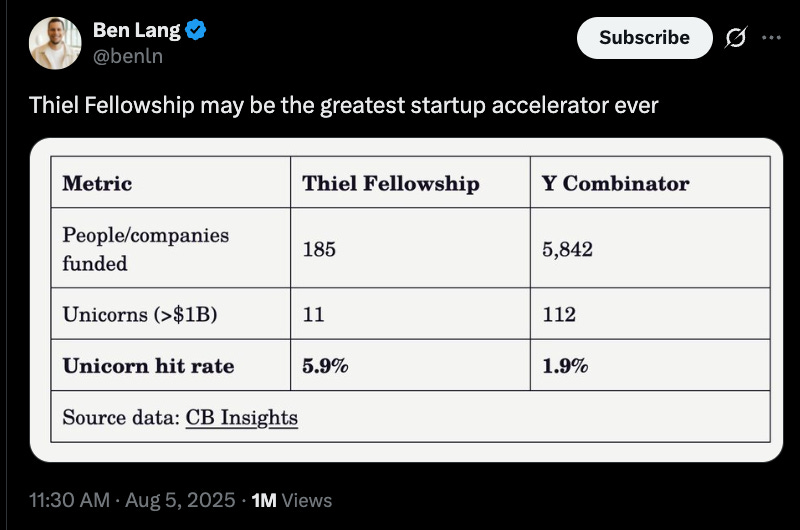

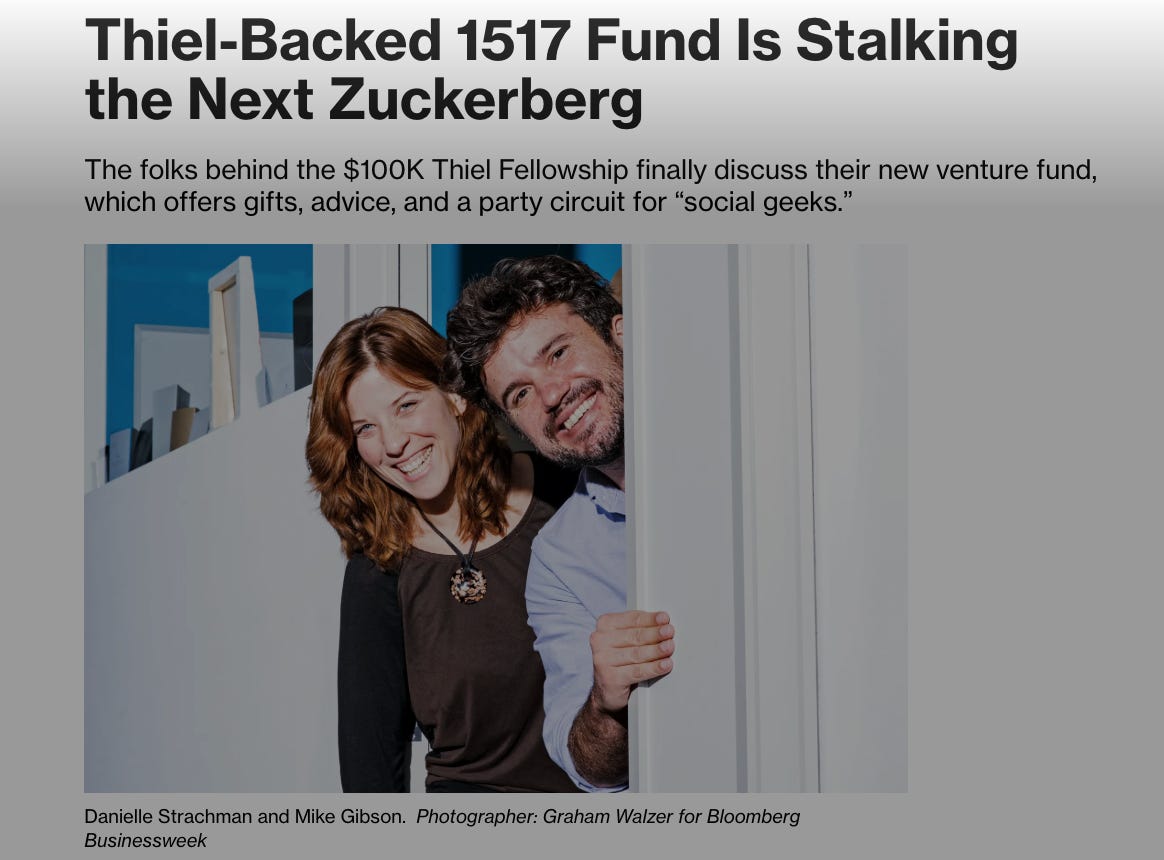


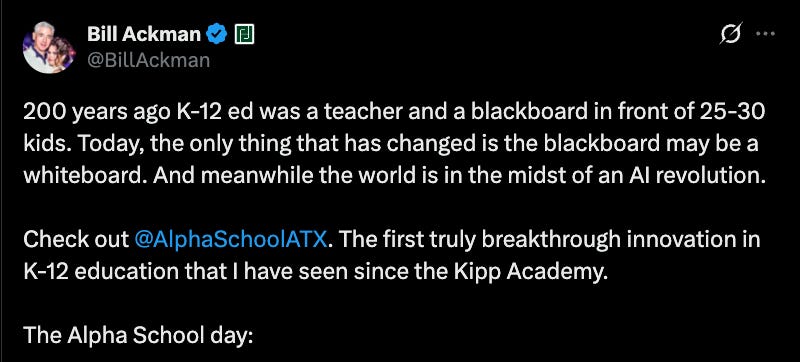
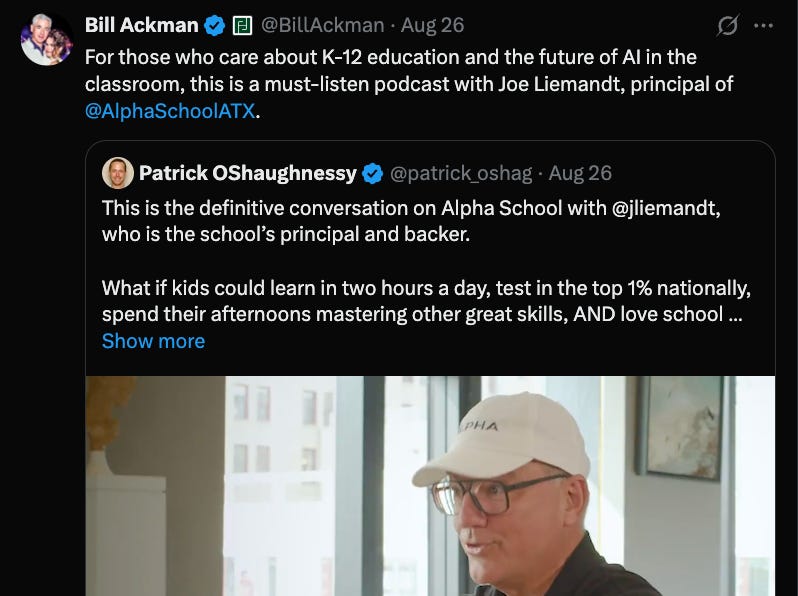
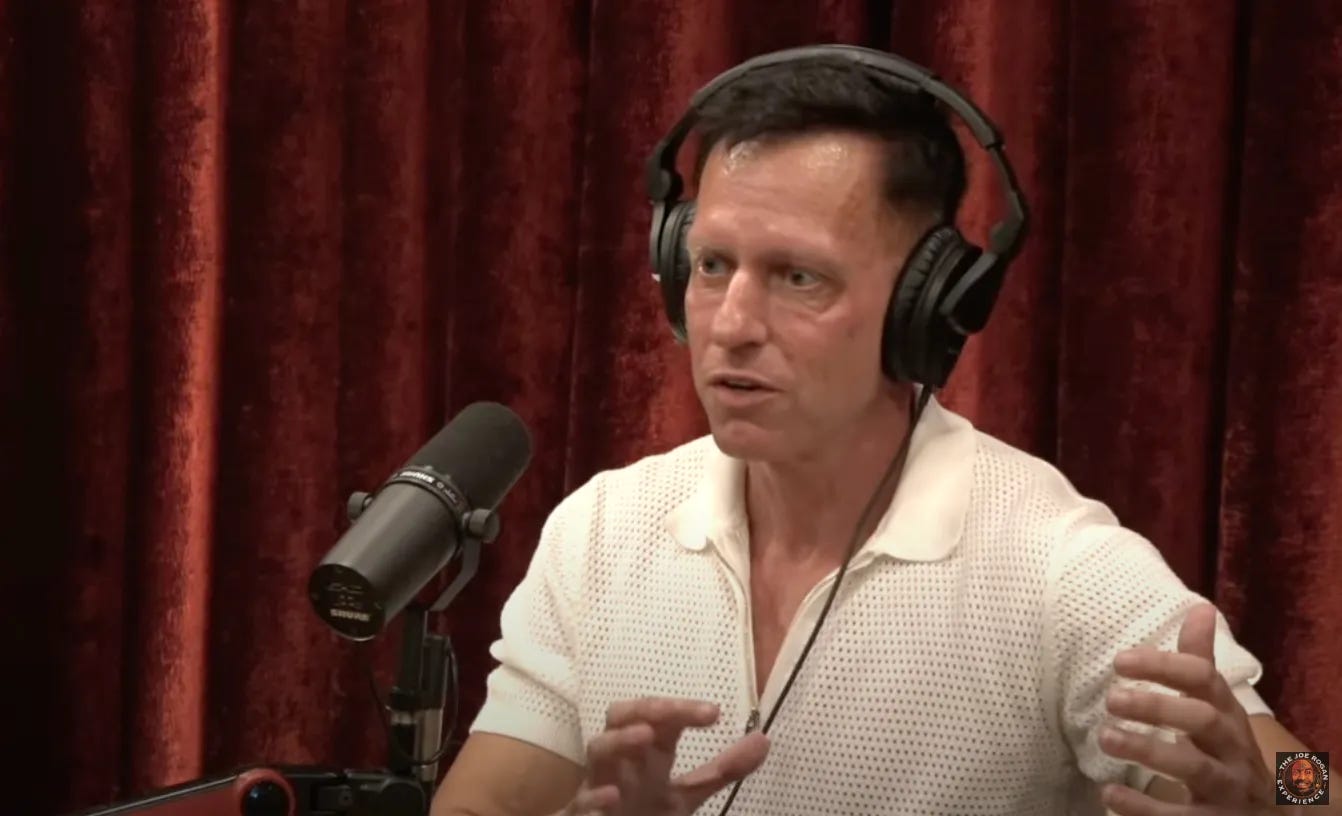
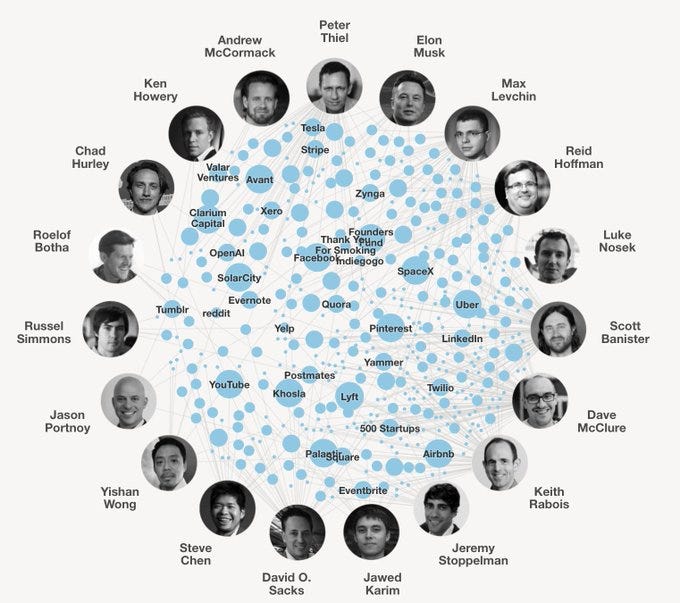
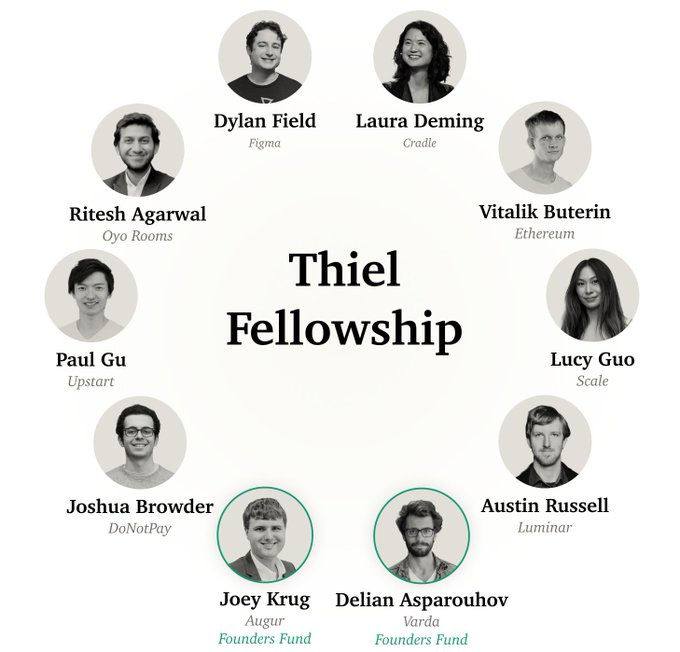
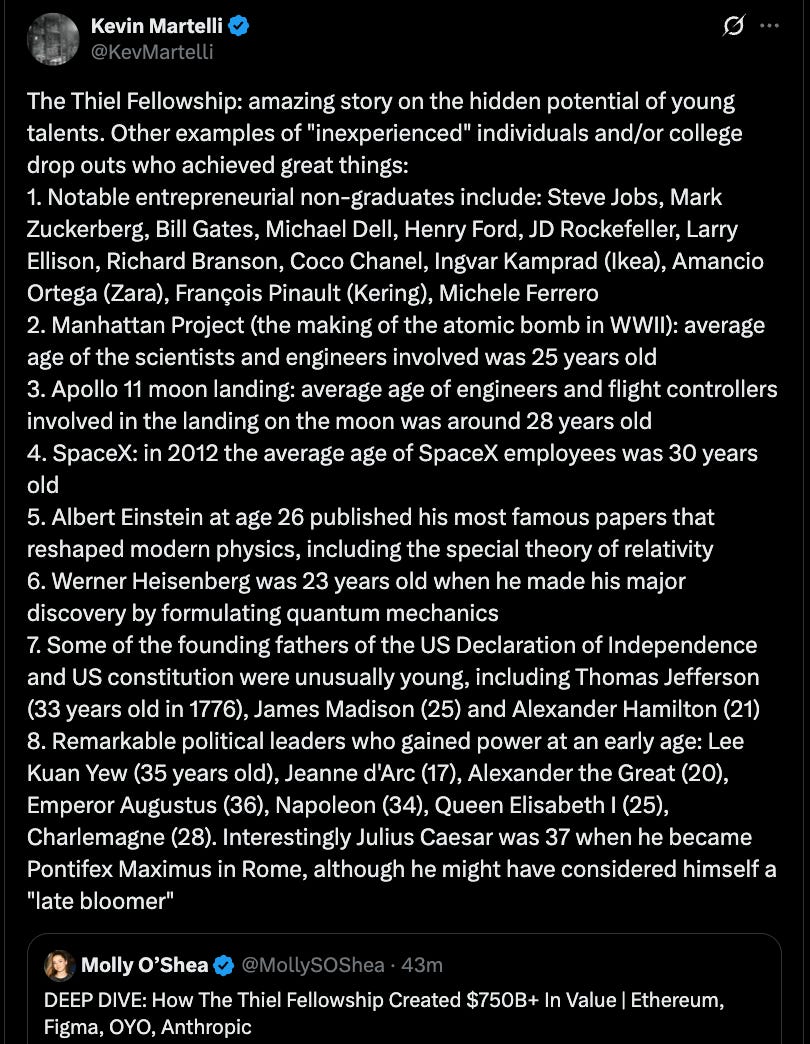

FYI, this link is broken: "Why Thiel Fellows Win | Blake Dodge, Pirate Wires"